From Destruction AllStars to Twisted Metal: A brief history of PlayStation's vehicular combat games
Why Destruction All-Stars embodies an age old PlayStation tradition
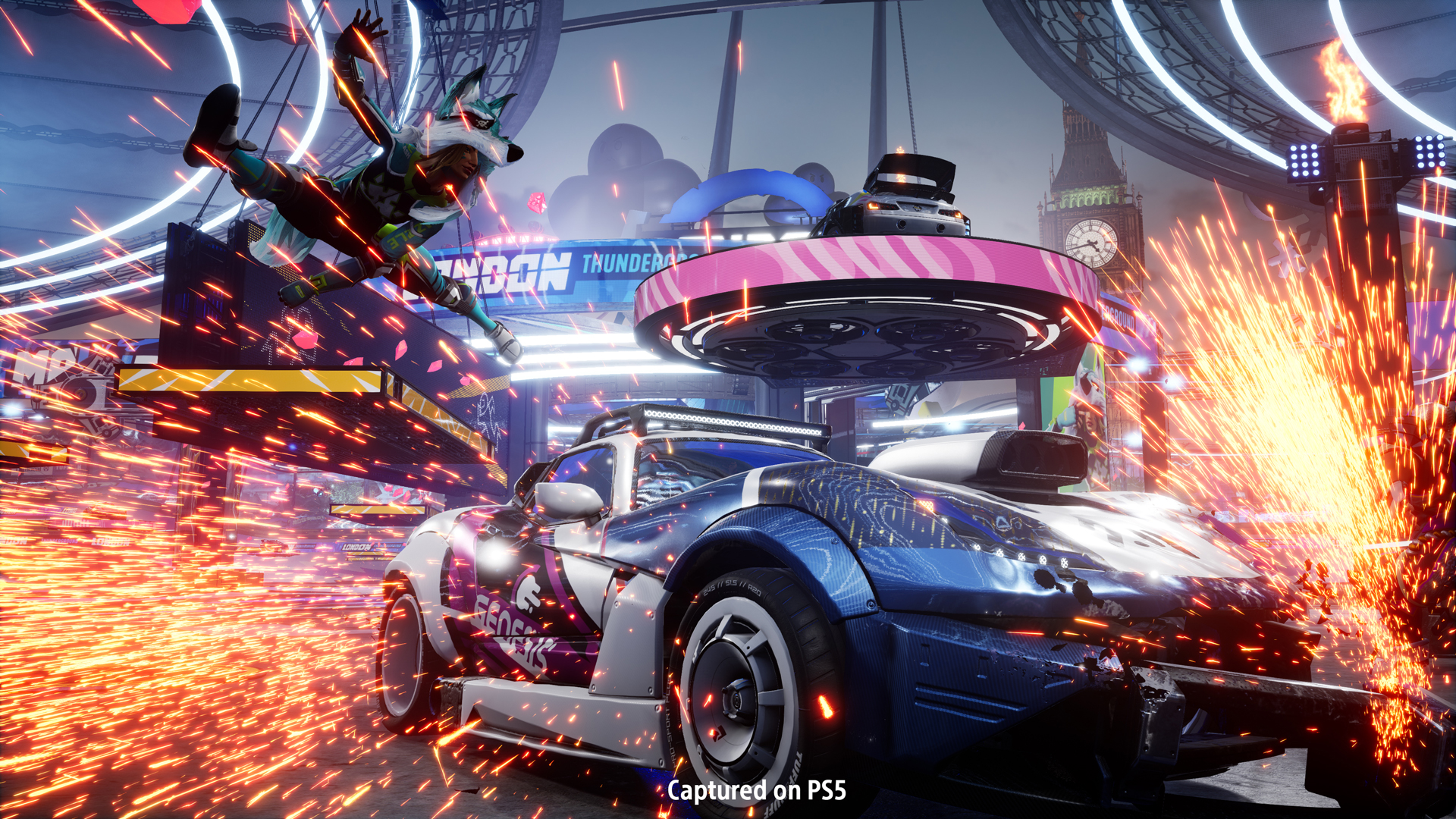
When the PS5 launched, it felt like something was missing. For many, the PS5 stock shortages meant that was the actual console, but Destruction AllStars was what stood out to me. Delayed only a couple of weeks prior to the console’s launch, the game’s absence really left a gap in the range of experiences we’d expected on day one, mainly because vehicular combat has been a key part of just about every major shift in PlayStation history.
This tradition dates all the way back to the original PlayStation, which launched at a time when console gaming was much more focused on the tastes of teenagers, a demographic deemed to be largely interested in going fast and making things explode. Resultantly, the console was blessed with some fantastic vehicular combat games from the start, with three arriving in the launch year of the console's life cycle.
Destructive tendencies
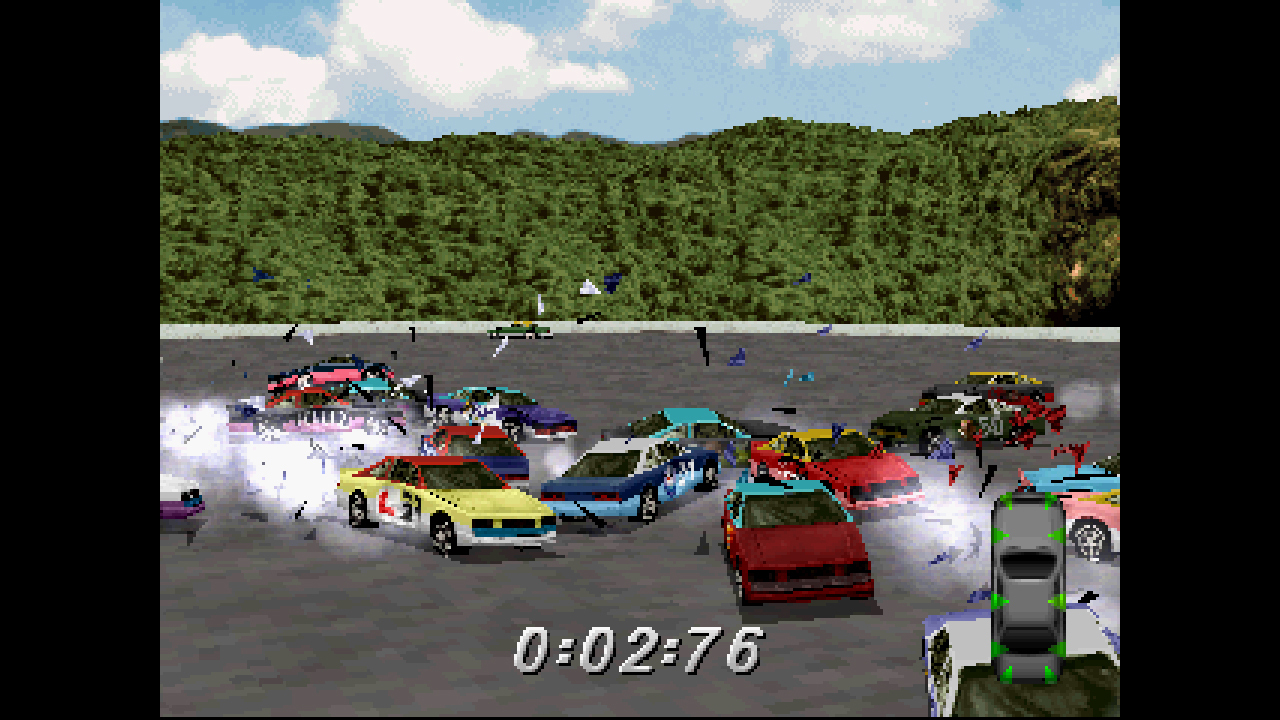
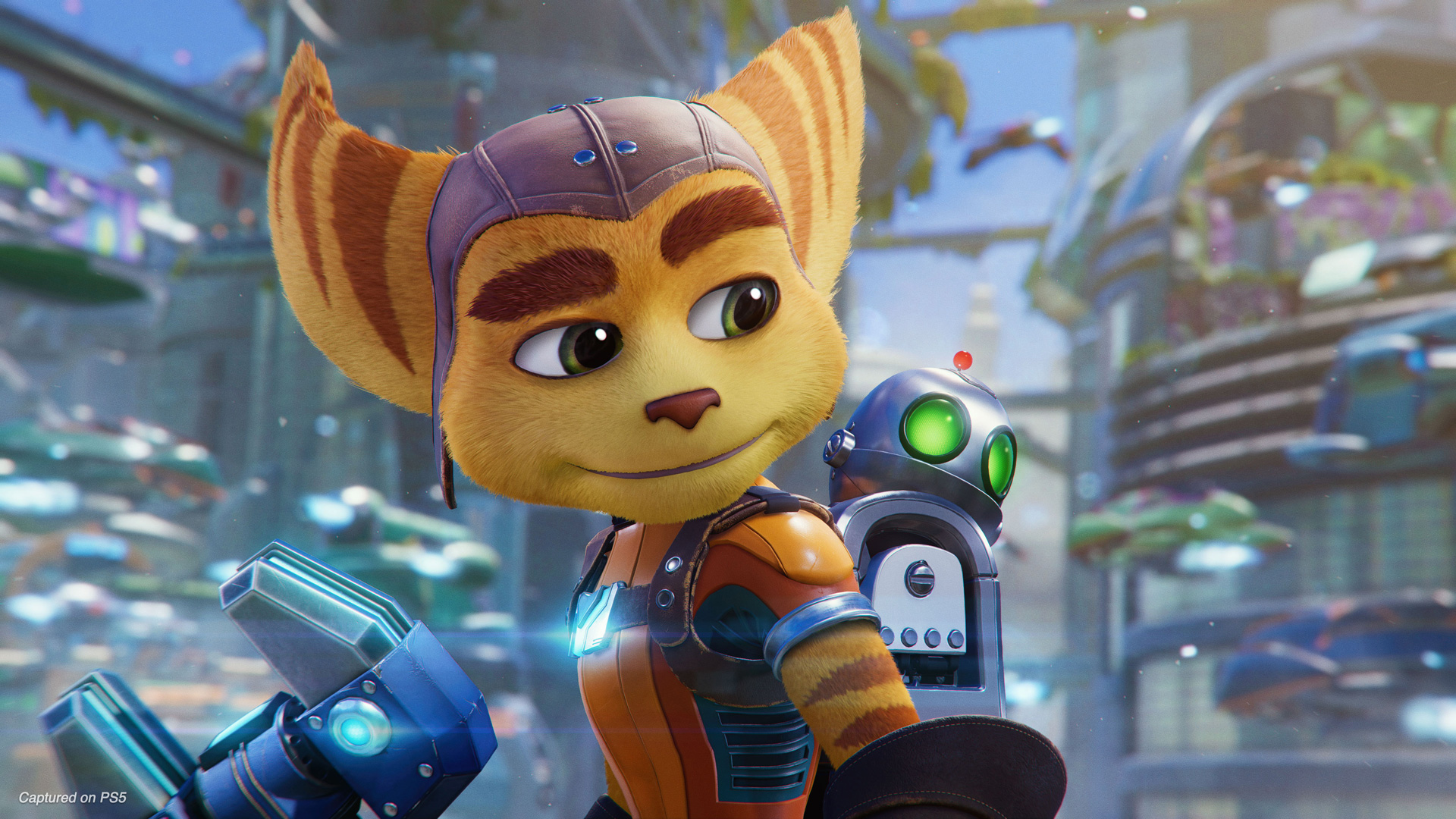
PlayStation in 2021: What the year holds for the PS5, its first-party studios, and more
Destruction Derby gave you the down to earth version of the genre, where clipping someone’s rear wing just right would send them into a satisfying 360 degree spin, while Twisted Metal went for a bombastic approach in the same year, equipping outlandish vehicles with machine guns and missile launchers. Then there was the futuristic racer WipEout, which was more focused on the racing side of things, but still allowed you to lay a batch of mines to stick it to the racer chasing you. Its sequels went further down the combat route – the second game allowed you to fully destroy rival racers, while the Eliminator events introduced in1999's Wip3out have been a staple of the series ever since.
Of course, those early favourites weren’t the only ways to smash your way to glory – we fondly remember the likes of Rollcage, Rogue Trip: Vacation 2012, Demolition Racer, and Vigilante 8. But that iconic trio of early games did all gain multiple sequels, solidifying their place in PlayStation canon, and eventually making appearances on the PS2. Twisted Metal: Black was one of the first truly great games for that second-generation console, in fact, taking the series into darker and more disturbing territory than the PlayStation entries had been able to explore.
Vehicular combat was even a major element of the PS2’s first, tentative steps into online gaming – Hardware: Online Arena was one of Sony’s earliest first party online games, and Twisted Metal: Black was given an online update too. While Destruction Derby Arenas failed to impress in 2004, it was hard to care too much, as the Burnout series, which had started on the PS2 a few years prior, incorporated a healthy dose of aggression in the instant classic Burnout 3: Takedown.
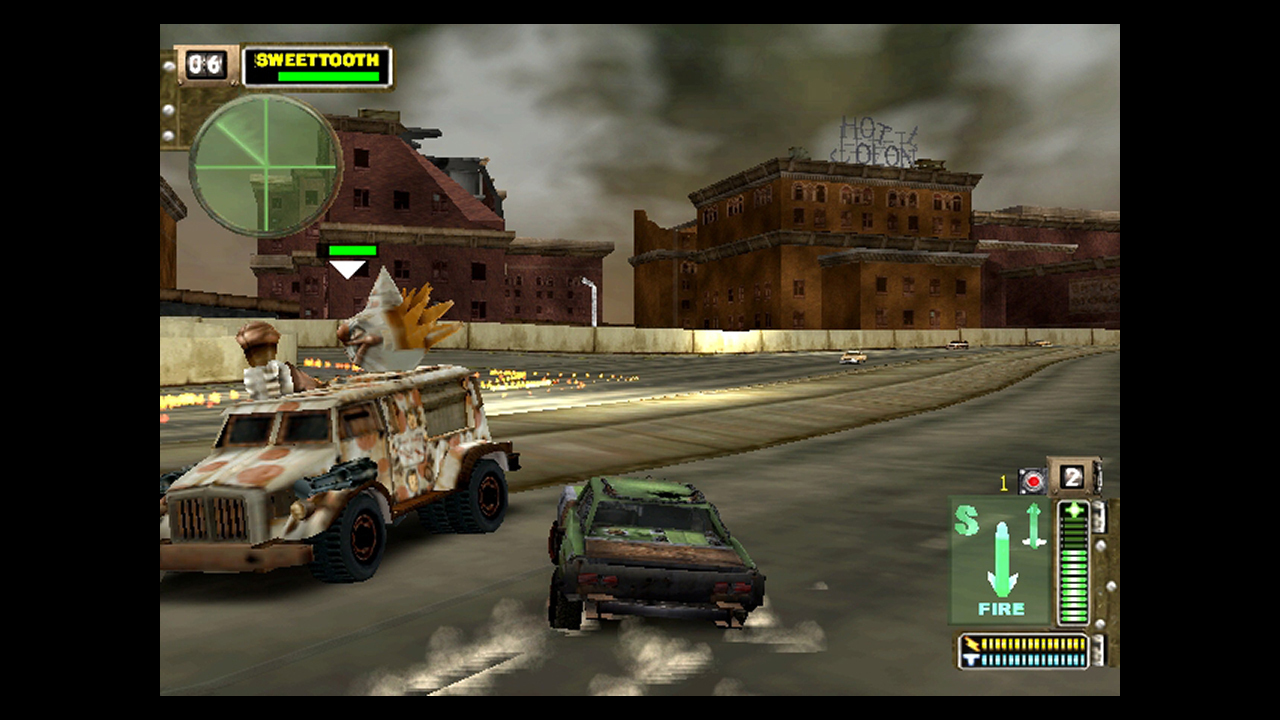
Wherever Sony has gone since, vehicular combat has always felt like a key component of its software offering. When the company entered the handheld market with the PSP, the first year of the system’s life was bursting with automotive mayhem.
Pursuit Force was a rare single-player call back to the old shunt and bump fun of Chase HQ, allowing you to chase down criminals and run them off the road, while Fired Up offered a more competitive slant – download play meant that you only needed one copy to get some friends in on the action. The old favourites were back too. Burnout Legends provided a “best of” compilation, and Twisted Metal: Head-On was a solid continuation of the series, revisiting the characters and themes of the earlier PlayStation games.
Sign up to the GamesRadar+ Newsletter
Weekly digests, tales from the communities you love, and more
When gaming went HD with the PS3, Sony reworked the tracks of PSP hits WipEout Pure and Pulse into the gorgeous WipEout HD – which just so happened to be one of the first games given to PS Plus members, following the service's launch in 2010. Though Eliminator mode was missing at first, it was soon added via another new feature – downloadable content. The PS3 also hosted third party greats like Blur, which played like Mario Kart with real cars, and Split/Second: Velocity, allowing you to use the track itself to wreck your rivals.
While it seems to be the case that Sony has moved on from its classic series to some extent – Twisted Metal and WipEout both had their last truly new games in 2012 – you can never count them out. After all, WipEout Omega Collection was used as recently as 2018 to provide a potent showcase for the power of PlayStation VR. Sony’s headset has also played host to a modern revival of one of the earliest vehicular combat games, Battlezone.
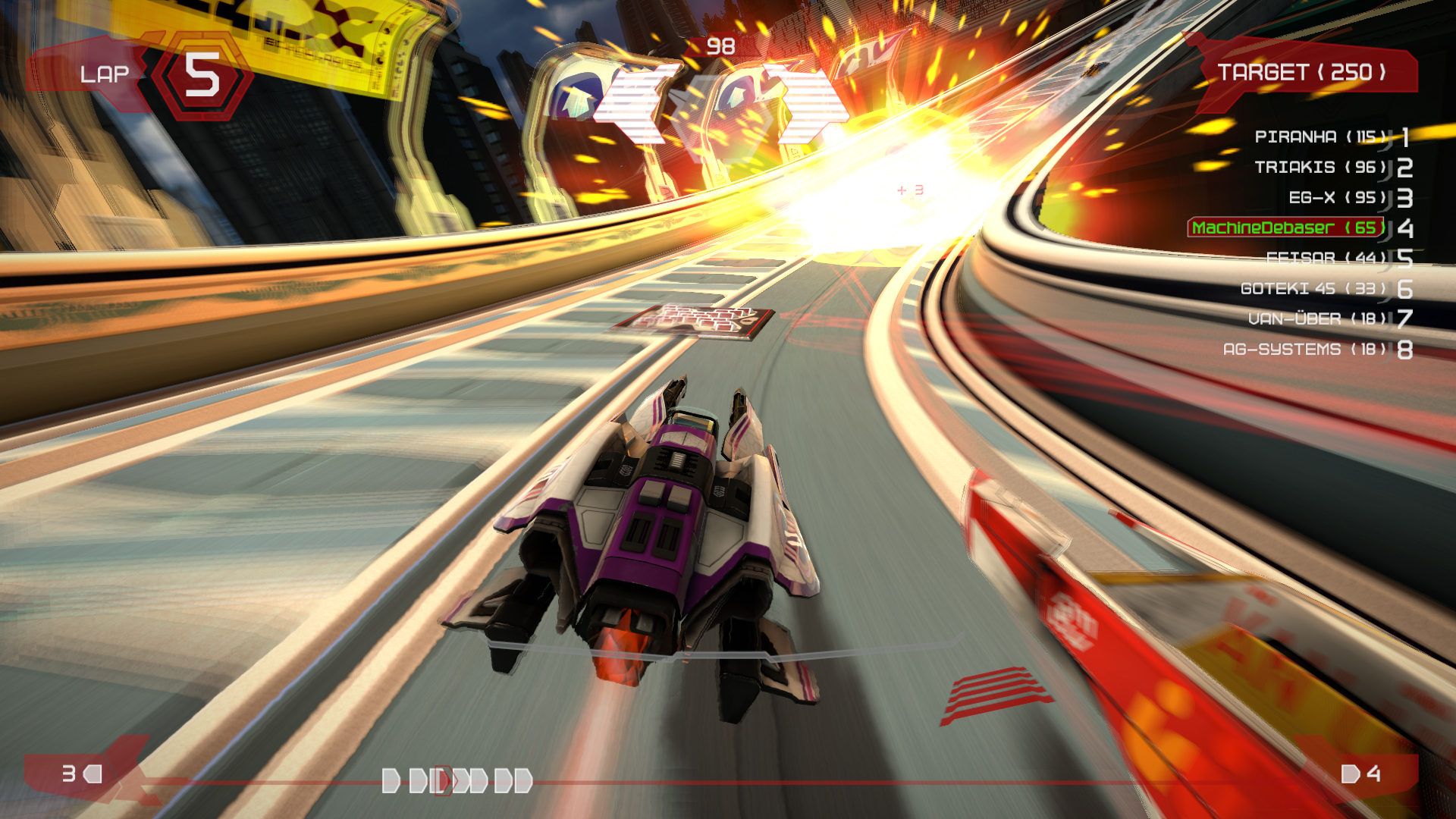
"While it seems to that Sony has moved on from its classic series to some extent, you can never count them out."
All of this should tell you why we feel like the arrival of Destruction AllStars makes the PS5 finally feel like a proper PlayStation. Vehicular combat is a part of the PlayStation DNA, and you can see elements of that distinctive heritage all over Destruction AllStars. Key staff at Lucid Games worked on the WipEout games, while the basic action is straight out of Destruction Derby.
Though you might argue that the characters and their various powers are a nod to the likes of hero shooters such as Overwatch, we can’t help but think of the outlandish cast of Twisted Metal. Then there’s the aesthetic, which owes a lot to Rocket League – a game that isn’t really vehicular combat but definitely falls under the “using cars for unintended purposes” category, and one which became a hit with PlayStation Plus subscribers in the way that Sony is hoping Destruction AllStars will.
Whether it does is something that only the players can decide, but for now we’re just happy that it lets us do what we always want to do on Sony consoles – drive dangerously and blow stuff up.
For more, check out everything new we've just learned about the Mass Effect Legendary Edition, or watch our review of The Medium below.
Nick picked up gaming after being introduced to Donkey Kong and Centipede on his dad's Atari 2600, and never looked back. He joined the Retro Gamer team in 2013 and is currently the magazine's Features Editor, writing long reads about the creation of classic games and the technology that powered them. He's a tinkerer who enjoys repairing and upgrading old hardware, including his prized Neo Geo MVS, and has a taste for oddities including FMV games and bizarre PS2 budget games. A walking database of Sonic the Hedgehog trivia. He has also written for Edge, games™, Linux User & Developer, Metal Hammer and a variety of other publications.



